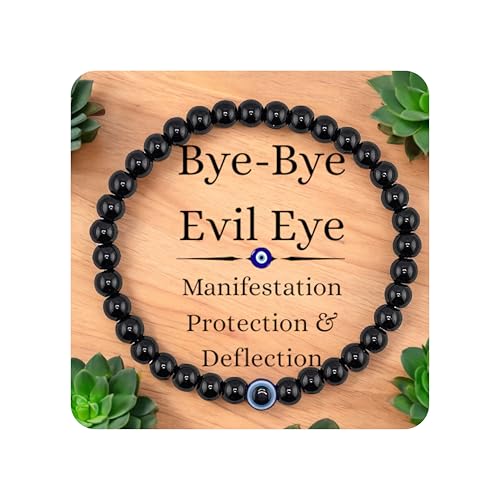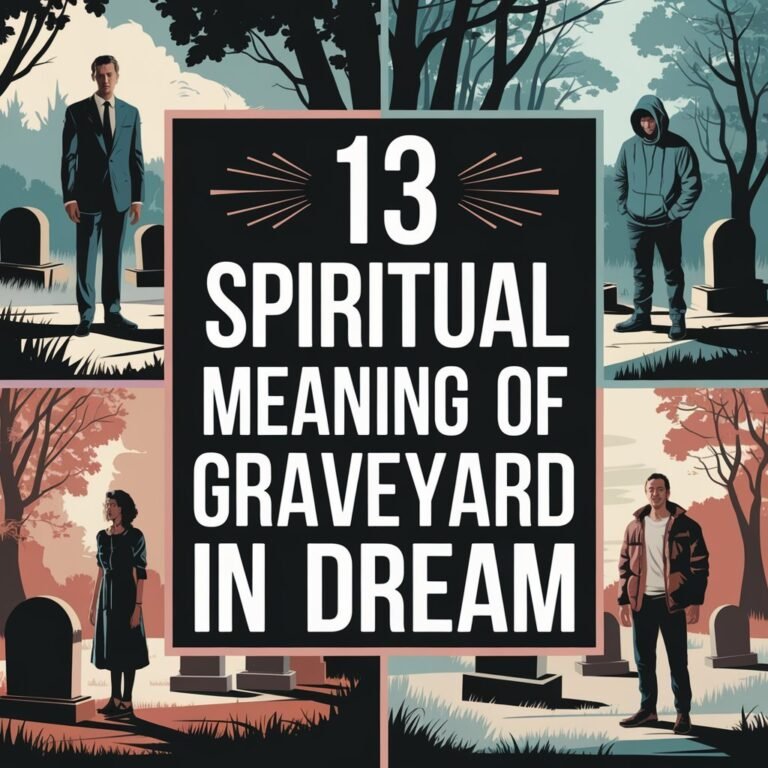13 Spiritual Meaning of Feeling Sad in Dream: 13 Secret of Comfort
As you wake up from a dream that left you feeling sorrowful, you can’t shake off the lingering emotions. You’re not alone. Feeling sad in a dream can be a spiritual alarm, signaling that it’s time to confront the unresolved emotions and unmet emotional needs that have been hiding in the shadows of your subconscious.
It’s a gentle reminder to acknowledge the whispers of your inner child, to release the burden of regret, and to reconnect with your true self. But what does this sadness really mean, and how can you find comfort in the unknown?
In a Nutshell

- Unresolved emotions and unhealed wounds from waking life surface in dreams, causing overwhelm and emotional backlog, and require confrontation and release for growth.
- Fear of loss and separation lurks beneath the surface, causing feelings of sadness and despair, and acknowledging and validating emotions helps understand the root of fear.
- The inner child’s painful memories and forgotten traumas resurface in dreams, symbolizing unprocessed emotions and experiences, and acknowledging and confronting them helps heal and integrate the inner child.
- Unmet emotional needs and regrets, such as intimacy, validation, and personal growth, manifest as sadness in dreams, and acknowledging and confronting underlying emotions releases the burden of regret.
- Spiritual yearning for a deeper sense of connection and sacred space manifests as sadness in dreams, and creating a quiet, peaceful space for self-reflection and growth helps reconnect with one’s true self.
Unresolved Emotions Surfacing
One of the primary reasons you may be feeling sad in your dream is because unresolved emotions from your waking life are surfacing.
Your subconscious is processing the emotional backlog you’ve accumulated, and this can be overwhelming. It’s as if your mind is trying to make sense of the hidden patterns and unresolved issues you’ve been carrying around.
You may have brushed off these emotions or tucked them away in the recesses of your mind, but they’re still lingering.
Your dream is an opportunity for your subconscious to bring them to the forefront, allowing you to confront and release them.
This can be a difficult and painful process, but it’s essential for your emotional growth and healing.
Fear of Loss and Separation
As you work through the unresolved emotions that have been surfacing in your dreams, you may find that a deeper fear is lurking beneath the surface: the fear of loss and separation.
This fear can be overwhelming, making you feel like you’re standing on shaky ground, unsure of what the future holds. You may be experiencing separation anxiety, constantly worrying about being abandoned or rejected by loved ones.
This fear of abandonment can stem from past experiences, making it difficult for you to form healthy attachments in the present.
Your dreams may be reflecting this fear, manifesting as feelings of sadness and despair.
It’s vital to acknowledge and validate these emotions, rather than pushing them aside. By doing so, you’ll begin to understand the root of your fear and can start working towards healing.
Remember, you’re not alone in this fear. Many people struggle with the fear of loss and separation, and it’s okay to admit your vulnerabilities.
Unhealed Wounds of the Past
Many unhealed wounds of the past continue to linger, affecting your emotional well-being and influencing your dreams.
These past hurts can manifest as sadness in your dreams, signaling that it’s time to confront and heal them. Unprocessed trauma can resurface in your subconscious, making it difficult to shake off the feelings of sorrow and despair.
Your dreams may be nudging you to explore the unresolved issues, allowing you to finally find closure and move forward.
It’s essential to acknowledge that these wounds are still affecting you, even if they occurred years ago.
By recognizing their impact, you can begin to release the emotional burden they’ve been carrying. Reflect on the experiences that have left emotional scars, and consider seeking support from loved ones, therapy, or spiritual practices to help you heal.
Inner Child’s Painful Memories
Your dreams may also be reflecting the inner child’s painful memories, which still linger within you.
These memories can be so deeply buried that you’re not even aware of their existence, yet they continue to influence your emotions and behaviors.
It’s possible that your sadness in the dream is a manifestation of your inner child’s unresolved pain, crying out for attention and healing.
You may have exhibited childish behaviors in the dream, such as tantrums or fear, which are indicative of unresolved childhood traumas.
Forgotten traumas can resurface in your dreams, symbolizing the unprocessed emotions and experiences that still require closure.
By acknowledging and confronting these painful memories, you can begin to heal and integrate your inner child, leading to a more whole and balanced you.
Remember, your dreams are a gateway to your subconscious, offering a unique opportunity for self-reflection and growth.
Suppressed Grief and Mourning
Feeling overwhelmed by sadness in your dream may be a manifestation of suppressed grief and mourning that you’ve been carrying in your waking life.
It’s possible that you’ve been avoiding or denying your emotions, leading to pent-up feelings that are now surfacing in your subconscious.
This emotional numbness can be a coping mechanism to deal with the pain of loss, but crucially, you must acknowledge and process your emotions to move forward.
Your dream is urging you to confront the grief you’ve been suppressing.
- Unresolved losses: Have you experienced a recent loss, such as the death of a loved one, a breakup, or a significant change in your life? Your dream may be a reflection of your unprocessed emotions.
- Emotional avoidance: Have you been avoiding conversations or situations that trigger strong emotions? Your dream is urging you to face your feelings head-on.
- Physical symptoms: Have you been experiencing physical symptoms like fatigue, headaches, or insomnia due to emotional numbness? Your dream is a wake-up call to address the underlying emotional pain.
Shadow Self’s Hidden Fears
Beyond the veil of your conscious awareness, a part of you has been harboring hidden fears, and your dream is bringing them to the surface.
These deep-seated anxieties often reside in the dark corners of your psyche, where your inner demons dwell. Your dream is an invitation to confront and acknowledge these fears, allowing you to integrate your shadow self into your conscious awareness.
As you excavate into the symbolism of your dream, you may uncover patterns of self-doubt, fear of failure, or anxiety about the unknown.
These fears can be overwhelming, but remember that they’re a natural part of your psyche. By acknowledging and accepting them, you can begin to heal and release their hold on you.
Your dream is urging you to explore the uncharted territories of your mind, where your shadow self has been hiding.
It’s time to shine a light on these hidden fears and confront them head-on. By doing so, you’ll gain a deeper understanding of yourself and develop a more compassionate relationship with your inner world.
Longing for Lost Innocence
As the fog of sadness settles in your dream, a deep sense of longing stirs within you, evoking memories of a bygone era when life was simpler, and your heart was lighter.
You yearn for the carefree days of your childhood, when laughter and wonder came easily.
This nostalgia is a sign that your soul is craving a deeper connection with your inner self and the world around you.
This longing for lost innocence is an invitation to reclaim the following aspects of your life:
- Childlike wonder: Tap into the curiosity and awe that defined your childhood. Allow yourself to marvel at the beauty and magic of the world.
- Forgotten joys: Reflect on the activities and hobbies that brought you immense happiness in the past. Rekindle those passions and let them bring joy to your present.
- Simplistic perspective: Embrace the simplicity of life, untainted by the complexities of adulthood. View challenges through the lens of innocence and optimism.
Disconnection From Inner Self
Your dream’s melancholy atmosphere may also signal a disconnection from your inner self, a sense of being out of touch with your thoughts, emotions, and desires.
This disconnection can manifest as a feeling of emptiness, as if a part of you is missing. It’s as if you’ve abandoned your own soul, leaving it to wander in the shadows. This soul fragmentation can lead to feelings of sadness, even in your waking life.
When you’re disconnected from your inner self, you may struggle to understand your own motivations and desires.
You might feel lost, unsure of which path to take or what decisions to make. This inner abandonment can be a result of traumatic experiences, societal pressures, or even self-doubt.
Your dream is urging you to reconnect with your inner self, to listen to your intuition and honor your emotions.
Unmet Emotional Needs
Emotional voids can be a breeding ground for sadness in dreams, suggesting that some essential aspect of your emotional well-being isn’t being met.
This unmet need can manifest as feelings of emotional neglect, where you feel unheard, unseen, or unvalued in your waking life. Your subconscious is whispering to you, drawing attention to the areas where you’re not receiving the emotional nourishment you crave.
Take a closer look at the following areas where unmet desires might be lurking:
- Intimacy and connection: Are you feeling isolated or disconnected from others? Do you yearn for deeper, more meaningful relationships?
- Validation and recognition: Are you seeking acknowledgment or appreciation from others, but not receiving it?
- Personal growth and fulfillment: Are you feeling stuck or unfulfilled in your personal or professional life, leaving you with a sense of emptiness?
Regrets and Missed Opportunities
Sadness in dreams can also stem from regrets and missed opportunities, which can weigh heavily on your mind and heart.
You may be carrying around the weight of what could’ve been, replaying scenarios in your head, and wondering what would’ve happened if you’d made different choices. These missed chances can haunt you, making you feel like you’re stuck in a cycle of “what ifs” and “maybes.”
You might be longing for past apologies or trying to make amends with yourself or others.
This lingering sense of regret can seep into your subconscious, manifesting as sadness in your dreams. Crucial to recognize is that you must acknowledge these feelings and confront the underlying emotions driving them.
Ask yourself what you’re trying to learn from these experiences and what you can do differently in the present to move forward. By doing so, you can begin to release the burden of regret and missed opportunities, allowing yourself to heal and move forward.
Fear of the Unknown Future
As you drift off to sleep, the uncertainty of tomorrow can creep into your subconscious, manifesting as a sense of sadness in your dreams.
This fear of the unknown future can be overwhelming, leaving you feeling lost and uncertain about what’s to come.
When you’re faced with an uncertain tomorrow, it’s natural to feel a sense of dread or anxiety.
Your mind begins to wander, wondering what the future holds, and whether you’re prepared to face it.
This fear can create a dark horizon in your mind, making it difficult to see a clear path forward.
- Lack of control: You may feel like you’re at the mercy of fate, with no control over the events that are unfolding.
- Unrealistic expectations: You might be putting too much pressure on yourself to have all the answers, leading to feelings of inadequacy.
- Fear of change: The unknown can be intimidating, and the thought of change can be uncomfortable, even if it’s necessary for growth.
Lost Sense of Identity
Into the depths of your subconscious, a sense of sadness in your dream can plunge, revealing a lost sense of identity that’s been lingering beneath the surface.
This emotional undertow can be unsettling, leaving you feeling uncertain about who you’re and where you belong.
Your dream may be mirroring your waking life, where social anxiety and self-doubt have taken up residence, making it difficult to distinguish your true self from the expectations of others.
You may have been trying to fit into roles or personas that don’t authentically reflect your values, passions, or desires.
This disconnection can lead to feelings of sadness, emptiness, and disorientation.
Your dream is urging you to explore and reconnect with your genuine self, beyond the masks you wear.
It’s time to peel back the layers and rediscover what brings you joy, what ignites your passion, and what makes you feel whole.
Yearning for Spiritual Connection
One aspect of your psyche is crying out for a deeper sense of spiritual connection, and this longing is manifesting as sadness in your dream.
You’re not alone in this feeling; it’s a common symptom of a soul yearning for something more. Your dream is a reflection of your inner world, where a part of you is seeking a stronger bond with the Divine.
This sadness can be a catalyst for growth, urging you to explore new ways to connect with your spiritual self.
Consider the following:
- Create a sacred space: Designate a quiet, peaceful area in your home where you can meditate, pray, or simply sit in silence. This space will help you tune into your inner world and receive Divine guidance.
- Seek spiritual practices: Engage in activities that nourish your soul, such as yoga, journaling, or reading spiritual texts. These practices will help you cultivate a deeper sense of connection and understanding.
- Listen to your intuition: Pay attention to your inner voice, which often whispers subtle messages and insights. By listening to your intuition, you’ll become more attuned to your spiritual nature and the guidance it offers.
Frequently Asked Questions
Can I Control My Emotions in My Dreams to Avoid Feeling Sad?
You can take steps to manage emotions in your dreams by practicing emotional regulation in waking life and keeping a dream journal to process feelings, allowing you to better navigate and release sadness in your subconscious mind.
Do Recurring Sad Dreams Mean I’m Unhappy With My Waking Life?
You’re wondering if recurring sad dreams signal dissatisfaction with your waking life. Honestly, they might be a dream reflection of your unmet emotional needs or unresolved issues, hinting that you’re not fully content with your current life circumstances.
Can Feeling Sad in Dreams Affect My Mental Health in Reality?
You’re wondering if feeling sad in dreams can affect your mental health in reality. Yes, it can; dream anxiety can seep into your waking life, amplifying emotional intensity and impacting your mood, making it essential to address the underlying causes.
Are Sad Dreams a Sign of Spiritual Awakening or Just a Phase?
You’re wondering if sad dreams signal a spiritual awakening or just a phase? It’s possible you’re traversing dark nights of the soul, prompting intense soul searching, which can be a catalyst for profound growth and self-discovery.
Can I Overcome Feeling Sad in Dreams by Practicing Mindfulness?
As you cultivate mindful reflection, you’ll increase emotional awareness, allowing you to better understand and process your dream emotions, ultimately helping you overcome feeling sad in dreams and fostering a deeper sense of inner peace.
Conclusion
As you awaken from the dream, remember that the sadness lingers, urging you to confront the whispers of your subconscious. By embracing these 13 whispers of comfort, you’ll set out on a journey of emotional growth, healing, and self-discovery. Allow yourself to feel, to heal, and to reconnect with your true self. The unknown becomes less intimidating as you cultivate spiritual connection, and solace awaits in the depths of your psyche, where your inner child’s pain is transformed into wisdom.

Liza Stockholm is an esteemed spiritual guide and the visionary behind Spiritual with Liza. With a profound passion for empowering others on their spiritual journey, Liza offers a blend of educational content and personal guidance. Her expertise in spirituality is rooted in years of dedicated practice and study, making her a trusted companion for those seeking enlightenment and inner peace.











